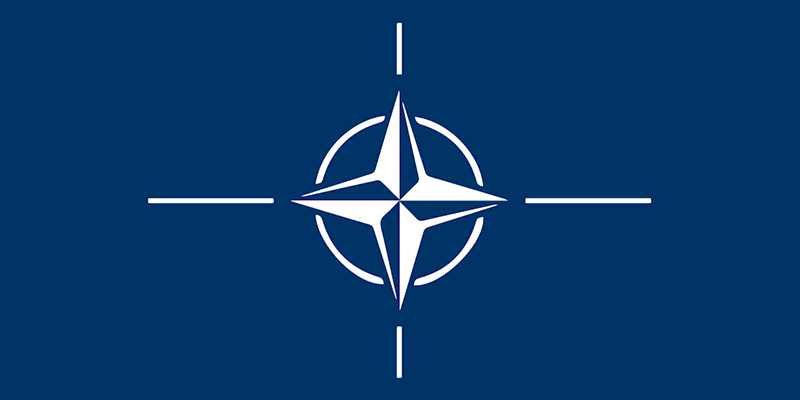December 02, 2019
"The NATO states are not paying their fair share," the American president said. "We have been very generous to Europe," he continued, "and it is now time for us to look out for ourselves, knowing full well that the Europeans will not do anything for us simply because we have in the past helped them."
So said John F. Kennedy during a national security meeting with his staff in 1963.
At the time, NATO was just 14 years old. The issue of burden-sharing in the alliance was already a divisive topic, but the Soviet threat held things together. This year the alliance turned 70 – and as leaders of the bloc's 29 member states meet in London today to mark that anniversary, NATO's purpose and future are more uncertain than ever.
Three big questions hang over the summit:
First, is NATO relevant? NATO was formed in the earliest days of the Cold War as a military bloc to deter Soviet aggression. Since the USSR collapsed in 1991, the alliance has struggled to define a new purpose as unifying as that one. Is it meant to prevent Russia from doing to former Soviet-bloc NATO members what it's done to Ukraine since 2014? Is it also a Western counter-terrorism bloc? Should it also focus more on the 21st century threat of cyberwarfare? Or is it enough that it's a military alliance guaranteeing security and stability for the world's two largest economic areas (North America and the EU)?
Second, is NATO "brain dead"? French President Emmanuel Macron recently threw a (rhetorical) bomb into the alliance by warning that Washington's shakier commitment to NATO, alongside internal disagreements over NATO-member Turkey's invasion of northern Syria, had put the alliance in danger of "brain death." Macron thinks the EU must develop its own collective defense plans if it wants to stay globally relevant. Other European NATO leaders don't really agree with that (they see in it Charles De Gaulle's old ambition of a Paris-led European security order), but Macron's remarks threw a harsh light on a basic question: are there still common transatlantic values and aspirations that can hold NATO together into the future?
Third, is NATO fair? NATO member states are supposed to spend 2 percent of their GDP on defense. Currently, only seven of them reach that level, while the US spends a hefty 3.39 percent. As the Kennedy quote above shows, questions about European "freeloading" are at least three generations old, but Trump is the first president to raise this issue so openly.
NATO heads of state are expected to renew their commitment to hitting those targets this week, but the bigger questions about the alliance's future will remain. Word is that the bloc is going to appoint a council of "wise persons" on how to reform and refresh the alliance ahead of the next summit in 2021.
What do you think the point of NATO in the 21st century ought to be? Let us know, and we'll run some of your best ideas.
More For You
World Central Kitchen staff hand out free soup in a neighbourhood that experiences electricity and heating outages following recent Russian attacks on Ukraine’s civilian infrastructure during subzero temperatures in Kyiv, Ukraine February 3, 2026.
REUTERS/Thomas Peter
1,170: The number of high-rise buildings in Kyiv that were left without heating following a barrage of Russian attacks last night on Ukraine’s capital and its energy facilities, per Kyiv Mayor Vitali Klitschko.
Most Popular
What We’re Watching: US critical minerals summit, Rafah crossing reopens, Border violence in Pakistan
Feb 02, 2026
U.S. President Donald Trump and Japanese Prime Minister Sanae Takaichi hold up signed documents regarding securing the supply of critical minerals and rare earths, at a bilateral meeting at Akasaka Palace in Tokyo, Japan, October 28, 2025.
REUTERS/Evelyn Hockstein
Representatives from the European Union, United Kingdom, Japan, and others will meet in Washington this week to discuss a strategic alliance on critical minerals.
Hard numbers: Large protests in Czechia, UAE-linked firm has large stake in the president’s company, & More
Feb 02, 2026
People take part in a rally in support of Czech President Petr Pavel, organised by Million Moments for Democracy group in reaction to dispute between President Pavel and Czech Foreign Minister and Motorists chair Petr Macinka, in Prague, Czech Republic, February 1, 2026.
REUTERS/Eva Korinkova
80,000: The number of people estimated to be in the streets of Czechia on Sunday to show their support for President Petr Pavel after he blocked the nomination of an environmental minister who performed the Nazi salute and posted Nazi memorabilia.
US President Donald Trump and musician Nicki Minaj hold hands onstage at the US Treasury Department's Trump Accounts Summit, in Washington, D.C., USA, on January 28, 2026.
REUTERS/Kevin Lamarque
The US has started handing $1,000 to the bank accounts of newborn babies. But can policies like this one help boost sagging birthrates in advanced democracies?
© 2025 GZERO Media. All Rights Reserved | A Eurasia Group media company.
